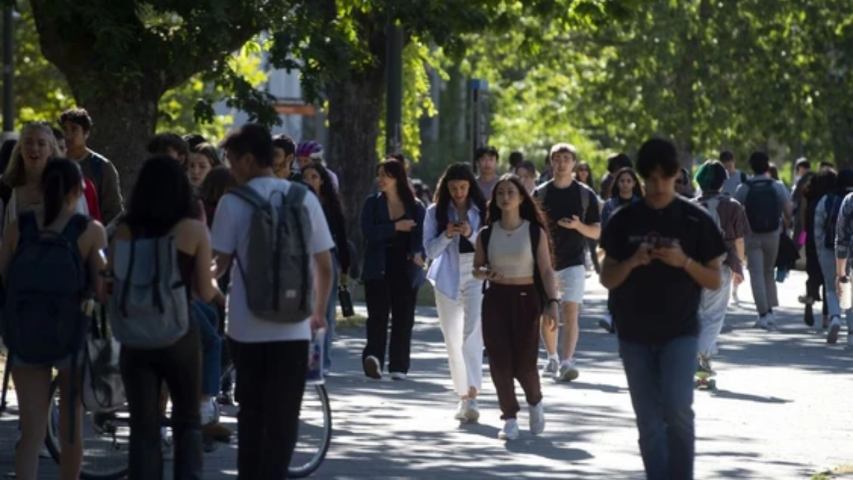

Students of the University of British Columbia in Vancouver. (Photo: Bloomberg)
Canada is reevaluating how many long-term visas it grants to foreign students, highlighting the government's aim to control immigration and manage population growth. Immigration Minister Marc Miller explained that discussions among federal and provincial officials are focusing on aligning labor market needs with the influx of international students.
For years, Canada has welcomed educated immigrants through universities and colleges. However, Miller emphasized that obtaining a study visa should not automatically guarantee future residency or citizenship. He stressed that students should primarily come to gain education and skills to take back to their home countries.
Prime Minister Justin Trudeau's government is under increasing pressure due to rising living costs, fierce competition for housing, and higher unemployment rates. To address these issues, Canada has implemented a cap on international student visas, projecting to issue fewer than 300,000 new permits this year, a significant drop from about 437,000 the previous year.
With this reduction in visas, officials are now closely examining which students will be allowed to remain in Canada after completing their studies. Miller pointed out that it is essential to ensure job opportunities for international students match their fields of study. This effort aims to address the labor shortages many provinces are experiencing.
Miller noted that the rationale for having an unlimited number of international students is no longer valid. In recent years, the number of people holding post-graduate work permits in Canada has surged, with 132,000 new permit holders in 2022—an increase of 78% from four years earlier.
Changes to immigration policy will require collaboration among government bodies and businesses. Trudeau's administration is also scrutinizing a separate program that permits companies to bring in temporary foreign workers, as there are concerns about its misuse. Miller has committed to reducing the proportion of temporary residents in Canada from nearly 7% to 5% of the population.
Recently, foreign workers in Prince Edward Island protested after the provincial government cut the number of permanent residency nominations available for sales and service positions, with some even going on hunger strikes.
Miller remarked that Canada is increasingly viewed as less welcoming to international students. He indicated that study visas are now less of a pathway to permanent residency and more about fulfilling educational purposes. This shift aims to restore the original intent of these visas.
During a recent media roundtable in Surrey, British Columbia—a city with a significant South Asian immigrant population—Miller also expressed concerns about rising racism in Canada. He noted that while there has been strong support for immigration in the country, that consensus is beginning to erode.
Having an 'Identity Verified' badge or being 'Identity Verified' simply indicates that an individual has submitted information to complete our identity verification process or we have conducted internal verification using various authorized websites. While this process includes safeguards, it does not guarantee that the person is who they claim to be.
If you encounter any issues with this profile, please report them here. While all consultants who are verified have RCIC ID, we may not have the latest data in terms of their renewal/cancellation/discontinuation of their RCIC ID.
The "Verified Consultants" profiles are created using publicly available information, including data from the IRCC website, official consultant sites, other listing platforms, and social media. Immiperts.com is an independent platform, not affiliated with IRCC or any registered immigration consultants. To update, claim, or remove your profile, please contact us at [email protected].
╳